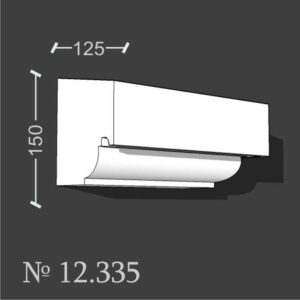Homeowners Association (HOA) fees can be a significant part of your monthly expenses, especially in managed communities where they cover amenities like landscaping, pools, and fitness centers. While these fees can enhance your living experience, they can also tighten your budget if not managed wisely.
In this blog post, we’ll explore 10 practical ideas to help you save money on HOA fees without compromising the quality of your community living. Whether you’re a new homeowner or a seasoned resident, these tips could potentially ease your financial burden.
1. Understand What You’re Paying For
Before you can start saving on your HOA fees, it’s essential to understand what these fees cover. Review your HOA’s budget and financial statements to see where the money goes. This knowledge can help you identify areas where costs might be reduced.
2. Get Involved in the HOA
One of the most effective ways to influence how your HOA fees are spent is by getting involved. Join the board or a committee to have a say in decision-making processes, especially those concerning budgeting and expenditures.
3. Advocate for Competitive Bidding
Ensure that your HOA is not overpaying for services. Advocate for policies that require multiple bids for any contractual service, from landscaping to repairs, to ensure competitive pricing.
4. Promote Energy Efficiency
By implementing energy-efficient solutions in community areas—like LED lighting, solar panels, and smart thermostats—your HOA can significantly reduce utility bills, which are often a part of what your fees fund.
5. Question Amenities Usage
If certain amenities aren’t widely used by the community, discuss whether it makes sense to maintain them. Reducing the number of amenities or replacing them with more popular options can lower overall costs.
6. Opt for Long-Term Planning
Encourage your HOA to plan for long-term expenses to avoid sudden increases in fees. A well-maintained reserve fund can help manage unexpected costs without having to raise fees drastically.
7. Volunteer in Your Community
Volunteering for tasks your HOA typically pays for, like minor landscaping or administrative duties, can reduce the overall operational costs, potentially lowering fees for everyone.
8. Review Insurance Policies
Regularly reviewing and comparing insurance policies can ensure that your HOA is not overpaying for coverage. Suggest this during board meetings to keep insurance costs in check.
9. Encourage Transparency and Communication
Transparent operations can lead to more trust and efficiency within the community. Encourage open discussions about budgeting and expenditures to find more ways to save money.
10. Educate Residents
Educating residents about the costs associated with their actions, like following community rules to avoid fines, can reduce unnecessary expenses for the HOA.
To learn more about specific details regarding HOA fees and how they can be effectively managed, visit this article to find out more about the HOA fees.
Frequently Asked Questions
Can I opt-out of paying HOA fees?
No, paying HOA fees is mandatory if you live in a community with an HOA. These fees are essential for maintaining the quality and functionality of the community amenities.
What happens if I don’t pay my HOA fees?
Non-payment of HOA fees can result in late fees, legal action, and even a lien against your property, so it’s crucial to keep up with these payments.
Can HOA fees increase and why?
Yes, HOA fees can increase to cover rising costs of services, unexpected repairs, or to replenish reserve funds. Annual increases should be outlined in your HOA’s bylaws.
How can I dispute a fee or decision made by the HOA?
Attend HOA meetings, voice your concerns, and if necessary, gather support from other residents to challenge decisions legally or through internal dispute resolution processes.
Conclusion
Saving money on HOA fees requires a proactive approach and involvement in your community’s governance. By understanding where your fees go, advocating for cost-effective measures, and participating actively, you can help manage and even reduce these expenses. Not only does this benefit your personal finances, but it also contributes to the overall health and sustainability of your community. Engage, suggest, and volunteer—your wallet and neighbors will thank you!













